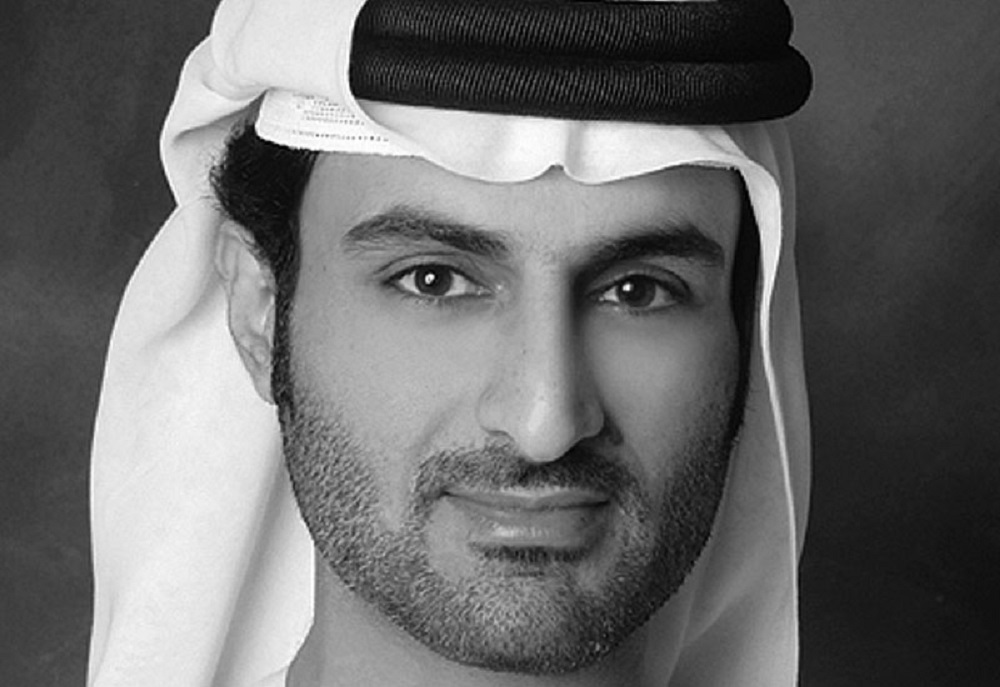Constitutional Suicide
Last week, the 4th U.S. Circuit Court of Appeals ruled in the case of al-Marri vs. Wright that a terrorist lawfully in the U.S. cannot be detained as an enemy combatant without a trial if he never fought against U.S. forces on a foreign battlefield or if he was not sent to the U.S. by the government of a nation with whom we are at war. Since al Qaeda is a transnational organization responsible to no government, Ali al-Marri, a resident alien and an al Qaeda sleeper agent operating in the U.S. could not be held as an enemy combatant in this country even though he was “engaged in conduct that constituted hostile and war-like acts including conduct in preparation for acts of international terrorism.”
Instead, the Court ruled that he was a “civilian” and was therefore entitled to all the rights and privileges granted civilians under our criminal justice system. In other words, by managing to obtain legal alien status in this country and by not formally battling U.S. forces in Afghanistan or Iraq, al-Marri was exempt from the normal rules of war. In its ruling, the court held that al-Marri had to be freed from military detention or placed in U.S. civilian detention where the federal government would have to charge him with a crime. The Wall Street Journal’s irate response to the ruling is understandable. The Journal noted that ‘the 9/11 terrorists, had they been caught, would have enjoyed more rights under this scheme than some low-level Taliban foot soldier.’
According to the facts that were undisputed for the purposes of the appeal, al-Marri, a citizen of Qatar and a U.S. resident alien studying on a valid student visa, trained at an al Qaeda terrorist camp in Afghanistan. In 2001, he met with bin Laden, volunteered to be a sleeper agent for al Qaeda and was ordered by bin Laden to the U.S. to prepare a second wave of terror strikes on the U.S. according to Khalid Sheik Mohammed, architect of the Sept. 11, 2001 attacks. On September 10, 2001 he entered the U.S. He was subsequently arrested in December 2001 as a ‘material witness’ to the Sept. 11, 2001 terrorist attacks. Evidence disclosed that al-Marri was in possession of a telephone card that had been previously used to call a number in Dubai linked to the reputed al Qaeda financier, Mustafa al-Hawsawi.
Jeffrey Rapp, Director of the Joint Intelligence Task Force for Combating Terrorism said in a sworn statement that al-Marri’s mission was to disrupt our financial system through computer hacking and obtaining information about poisonous chemicals. In particular, he intended to engineer a cyberattack on the U.S. banking system and “wipe out balances and otherwise wreak havoc with banking records in order to damage the U.S. economy.” Al-Marri’s laptop was found to contain highly detailed information concerning hydrogen cyanide, a deadly poison used in chemical weapons. As a result, he was designated as an “enemy combatant” and held at a naval base in South Carolina where he has remained since June 2003. Although (with that designation) he could have been held until the end of hostilities without trial, al-Marri did have the right to be represented by counsel and was permitted to contest his detention by filing a habeas corpus petition in federal court requiring the military to present its case against him.
From a practical point of view, the al-Marri ruling makes very little sense in the context of our current war. First, there are very few defined “battlefields” in this war other than Iraq and Afghanistan and al Qaeda, by its actions and fatwas (decrees) has made it clear that its ‘battlefields’ are every vulnerable railway tanker carrying toxic chemicals through our major cities, every major electrical power grid and water distribution center servicing our country and every nuclear power facility which, if penetrated and destroyed, could cause a radiological disaster.
Second, al Qaeda terrorists (who, unfortunately, are the prototypical terrorists of the future) wear no uniform, represent no country, are transnational in nature and ideology, operate on an entirely different value system, do not consider themselves bound by Western codes of conduct in war (such as the Geneva Conventions), have murdered Americans (civilian as well as military) from New York to Yemen and are engaged in a jihad against us. If this is not war, what is? So, if their operatives enter our country and plan mega-attacks against our civilian population, not declaring them “enemy combatants” is irresponsible bordering on negligence.
The court’s decision, if allowed to stand, would give al Qaeda a huge incentive to set up terror sleeper cells in the U.S. They would know their operatives would not be subject to military interrogation and could be tried for crimes in more lenient civilian courts because they would never be deemed enemy combatants. Instead of sending jihadists to Iraq or Afghanistan, al Qaeda need only indoctrinate them, train them, slip them into this country as legal resident aliens (or worse, use American citizens) and activate them as and when needed to carry out their jihad on American soil’.and if things go wrong and they were apprehended, these operatives can now rely upon our criminal justice system to protect them from revealing their contacts, methodology, funding sources, plans and future targets.
This has already proven to be a significant problem for European prosecutors. Several years ago, Reuters reported that Ihsan Garnaoui, a 34-year-old Tunisian, was acquitted in Berlin of trying to form a terrorist group, even though the judges considered it proven that he had planned to carry out at least one bomb attack in Germany at the start of the Iraq war in March 2003. The same day, Dutch teen-ager Samir Azzouz was acquitted of planning attacks on Amsterdam’s Schiphol airport, a nuclear reactor and government offices, although he had been found in possession of machinegun cartridges, explosive devices, electrical circuitry, maps and sketches of prominent buildings and a home made bomb that proved faulty only because he had used the wrong type of fertilizer. In the wake of these two cases, European legal experts raised an important issue faced by every prosecutor confronting such cases in civilian criminal courts – in the absence of an actual attack, how close must a suspect be to detonating a bomb or radiological, chemical, biological or nuclear device before prosecutors can prove his or her guilt beyond a reasonable doubt? We face the same dilemma when we allow terrorists access to our criminal justice system.
The Bush administration has been unable to convince the American public (especially the judiciary) that we are engaged in a war with a dangerous enemy whose rules of engagement, methodologies, tactics, goals and ideology are vastly different from our own. As a result, Al Marri vs Wright has given our enemies a gift once they have acquired legal status here. That is why those who are in this country and “engaged in conduct that constitutes hostile and war-like acts, including conduct in preparation for acts of international terrorism” should be declared “enemy combatants” not “civilians” and should not be subject to the same laws, procedures and evidentiary criminal standards of proof as are car thieves, scam artists, counterfeiters or bank robbers. The damage al Qaeda and its operatives intend to inflict on this country is catastrophic. They are dedicated to committing mass murder. They are here, they are trained, and they are at war with America. The stakes are much higher than with ordinary criminals.
It’s a pity that so many of our judges seem oblivious to this distinction. The notion of prosecuting terrorists as civilian criminal defendants is not simply wrong; it’s dangerous. Judicial proceedings will not dissuade terrorists or make them fearful of the consequences of their actions. In fact, it may even embolden them to continue such actions if they perceive our legal system as they perceive us – weak and vulnerable. That is because Islamic fascists are culturally different from ordinary criminals. Their goal is the destruction of our entire society as opposed to material gain. They seek to overthrow our society not to profit from it. They intend to kill millions and justify it in the name of Allah. Our criminal justice system (as opposed to our military commission system which is more inquisitorial in nature) tends to favor terrorists because it is designed to insure that the government must lose unless an accused’s presumption of innocence can be overcome beyond a reasonable doubt and, in most cases, it cannot. As is often the case, the evidence accumulated against these terrorists would not be admissible in a court of law (as, for example, the confessions of Khalid Sheik Mohammed) or cannot be presented without compromising our national intelligence gathering practices and sources.
In an note of sad irony, Richard Samp commented in USA Today: “(The al-Marri) decision conflicts with a previous decision involving Jose Padilla (the U.S. citizen who was arrested at O’Hare airport with plans to detonate a dirty bomb), whose indefinite detention as an enemy combatant was upheld by a panel made up of three different judges of the very same appeals court. Like al-Marri, Padilla was taken into custody in Illinois after returning to this country to engage in jihad. Padilla is a U.S. citizen and al-Marri is not. One would think that al-Marri’s alien status should have weakened, not strengthened, his constitutional claims.”
In the end, the decision on whether to apply enemy combatant wartime rules or civilian criminal law enforcement rules to terrorists who are legally resident in America will have to be considered when al-Marri vs Wright comes before the Supreme Court for adjudication. That decision will have a profound impact on our nation’s ability to protect itself against indigenous enemies in time of war.


